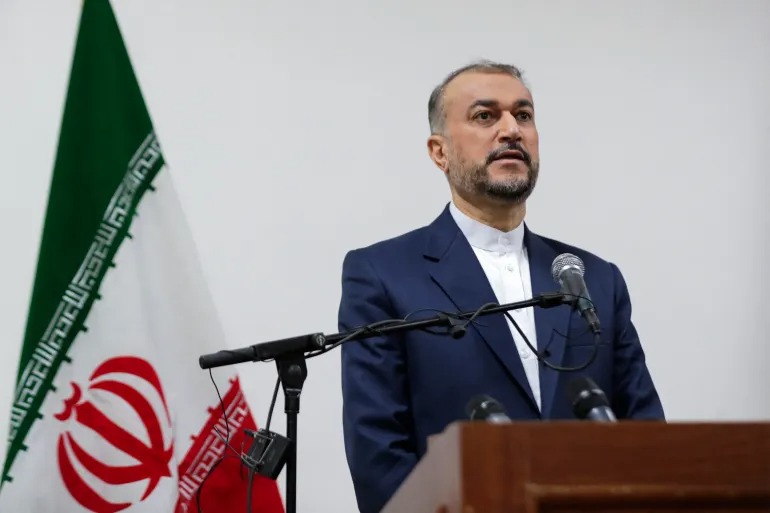Tensions in the Middle East have reached a boiling point as Iran issues a stern warning of a potential “preemptive” action against Israel in the coming hours. This alarming statement comes in the wake of Israel’s preparations for a ground offensive on the Gaza Strip, further escalating the long-standing conflict in the region. The Iranian-backed Hezbollah and Israel have been engaged in a fierce exchange of fire across the Lebanese-Israeli border, intensifying the already precarious situation. Amidst this volatile backdrop, Iran’s Foreign Minister, Hossein Amirabdollahian, delivered a live broadcast message on state TV, heightening concerns of a possible military confrontation.
A Fierce Exchange of Fire Rattles the Region
For several days, the Lebanese group Hezbollah, with support from Iran, and Israel have been locked in a fierce exchange of fire along the Lebanese-Israeli frontier. This exchange of hostilities has contributed to soaring tensions in the region. It follows a significant escalation in violence after the Palestinian armed group, Hamas, launched an unprecedented attack within Israel’s borders. Hamas’s assault marked a stark departure from previous incidents, pushing Israel to respond forcefully.
Iran Issues a Stark Warning
In a televised address, Iranian Foreign Minister Hossein Amirabdollahian emphasized the gravity of the situation. He warned of possible “preemptive” action against Israel in the “coming hours,” signaling the seriousness of the ongoing conflict. He pointed out that “all possible options and scenarios are there for Hezbollah.” Furthermore, Amirabdollahian expressed a strong commitment to thwarting Israeli actions not only in Gaza but also in other areas under the banner of “resistance leaders.”
The Iranian Foreign Minister conveyed the message that “the resistance leaders” would not allow Israel to act unchecked in Gaza. He also raised concerns about the alleged use of phosphorus bombs by Israel in its airstrikes on Gaza, which has been strongly criticized by human rights organizations. Amirabdollahian argued that defending Gaza today was essential to prevent similar tragedies in their own country, indicating the severity of the situation.
Regional Escalation Looms Large
Iran’s warning didn’t stop at the possibility of “preemptive” action; it extended to the broader regional context. Amirabdollahian highlighted the risk of regional escalation if Israel were to launch a ground offensive in Gaza. He expressed that if immediate measures to halt Israeli attacks failed to produce results, the likelihood of opening “many other fronts” would increase. This ominous prediction underscores the complexity of the situation and the potential for further destabilization in the region.
Conclusion:
As Iran issues a stark warning of possible “preemptive” action against Israel, the Middle East remains on the precipice of a larger regional conflict. Tensions have been mounting as Hezbollah and Israel engage in a relentless exchange of fire, while Israel’s preparations for a ground offensive in Gaza exacerbate the situation. Iran’s firm stance and commitment to resisting Israeli actions in Gaza underscore the gravity of the situation, with potential consequences that extend far beyond the immediate conflict. The international community watches with growing concern, hoping for a de-escalation of this volatile situation before it spirals further out of control.















